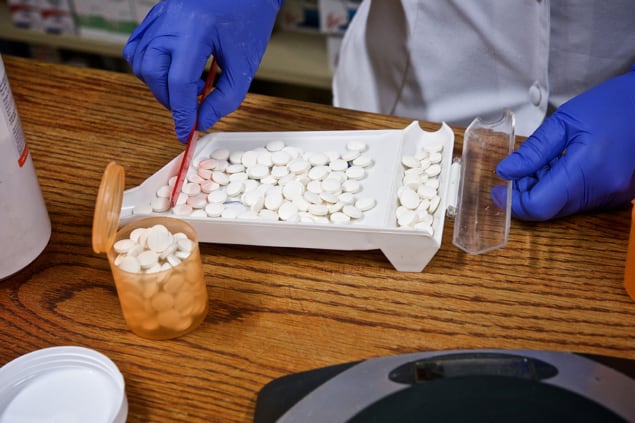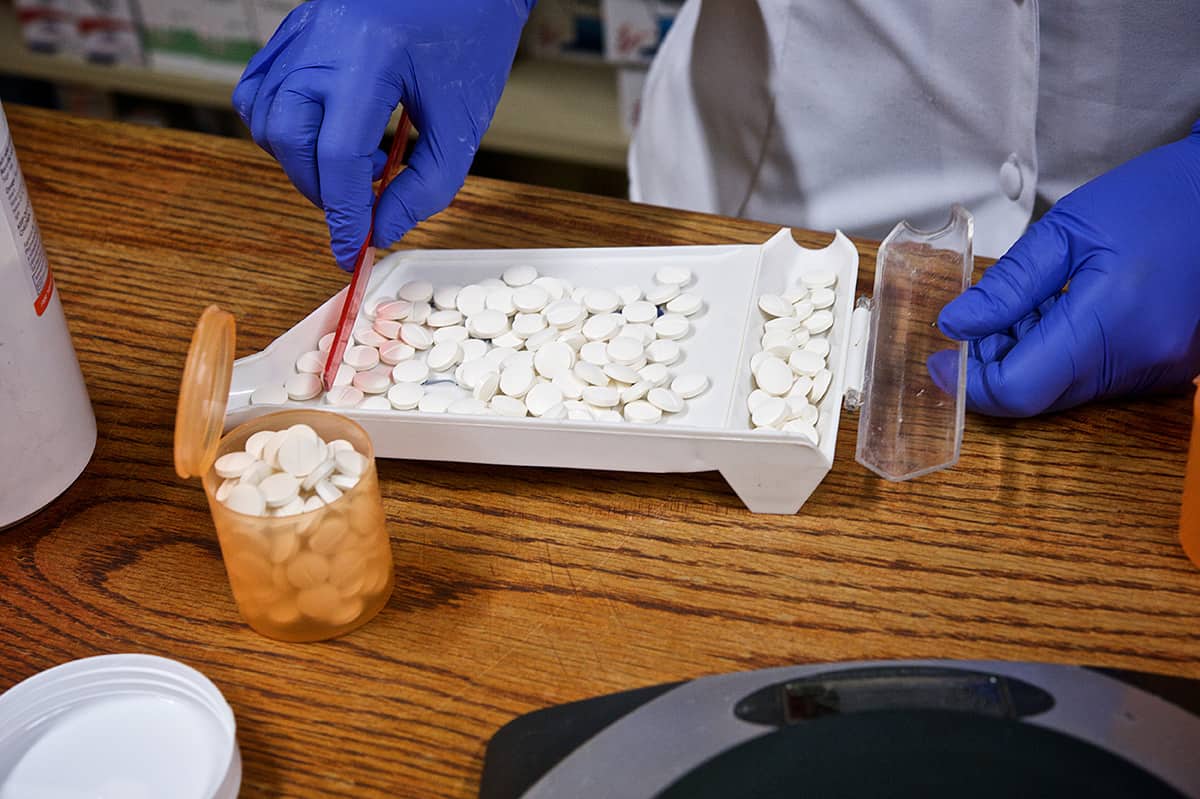Counting is easy, right? Kevin McGuigan recalls his time working at a mobile clinic in rural Kenya when it dawned on him just how hopeless he was at the task

I once spent a month in Kenya taking part in a study to see if it is practical to disinfect water with sunlight. For various reasons, I ended up spending my first week confined to base, in the hills outside Nairobi, twiddling my thumbs as I waited for an off-road vehicle to take me to my destination. Mike, who was head of the charity I was working for, could see I was bored to tears and so, on my fifth day in the country, asked me if I would like to help at their mobile clinic in the Maasai bush as their usual pharmacist was unavailable.
Me: You do know I’m not medically qualified.
Mike: Yes. We have our own doctor and our own nurses. I want you to act as substitute pharmacist.
Me: I’m just as unqualified to be a pharmacist as a clinician.
Mike: Don’t worry. You’ll be in charge of the pharmacy trunk. The patients will be seen by the medical team. If medication is required, they’ll write the type and number of pills on the outside of an envelope and give the envelope to you to fill. Serune – our interpreter – will be with you and he will tell the patient how many and how frequently they should take the pills. Your only job will be to count the pills into the envelope.
I therefore found myself driving through the southern Kenyan bush to a rural school, where we were going to set up our mobile clinic. In fact, when we arrived there was already a long queue of Maasai people waiting for us. Desks were taken out and placed in the shade of a tree. I was given the pharmacy trunk and the local doctor told me which pills would be used for which conditions.
Not being able to speak the local language, I was glad to have Serune next to me to translate. The medical team playfully announced to the waiting crowd they had a distinguished university professor from a medical college in Ireland assisting on the pharmacy desk. What could possibly go wrong?
I saw Serune looking at the jumble on the plate. How on earth could he know how many pills there were?
My first customer arrived soon afterwards with instructions emblazoned on an envelope: “Pills for malaria, one to be taken four times per day for seven days (28 pills)”. I poured about 28 pills onto a plate and start counting.
Me: One, two, thr…
Serune: 26. You have 26 tablets there.
I saw Serune looking at the jumble on the plate. How on earth could he know how many pills there were? I know how important it is to be accurate in such matters. So I decided to confirm Serune’s thinking for myself.
Me: Four, five, si…
Serune: 26. I’m telling you Dr Kevin, you have 26 pills there.
Undeterred, I carried on counting the pills. All 26 of them. So I added another two and gave the filled envelope to Serune who explained to the elderly lady how and when they should be taken.

Next to arrive was one of the Maasai elders, who brandished an envelope requesting “Antibiotic pills, one to be taken twice per day for seven days (14 pills)”. I opened the containers of antibiotics, poured out what I thought was approximately 14 pills onto a plate and started counting.
Me: One, two, thr…
Serune: 16, you have 16 pills there.
Me: Three, fou…
Serune: Dr Kevin how can you not see that you have 16 pills there?
At this point the elder said something in the local dialect that made Serune burst out laughing. After I counted to 16, removed the two surplus pills and sent customer number two happily on his way, I asked Serune what he found so funny. Apparently, the elder had quipped that he has a four-year old granddaughter who can count faster than the professor from the medical college.
We refined our procedure so that for the rest of the day, I did all the pouring and Serune did all the counting. Our work rate quadrupled. That evening, as we drove back home, I asked Serune how the local people could count so fast and so accurately. What was the secret to their amazing numeracy?
He explained that from the age of seven, each Maasai child is given a number of goats to look after. The goats forage in the bush and the goatherds need to know where they are and if any are missing. When the child reaches the age of 14, they do the same with the more valuable cattle. As a result, Maasai children develop quick and efficient counting skills. For them, it’s almost a type of pattern recognition and they were incredulous that a fully grown adult should find it so hard to count.
Although I didn’t realize it then, I now know that the way that the Maasai count has several names: subitizing; number sense; number discrimination. All refer to the ability to know immediately how many items lie within a visual scene. In fact, researchers in Italy have recently shown that the pupils of our eyes dilate involuntarily when we count large numbers of things, to assist in this process.
In total, I worked with the Maasai community for nearly 10 years. In that time, they taught me many things, including the true meaning of respect, kindness and generosity of spirit. However, to my great regret, they never quite managed to teach me the knack of how to count like they can.
